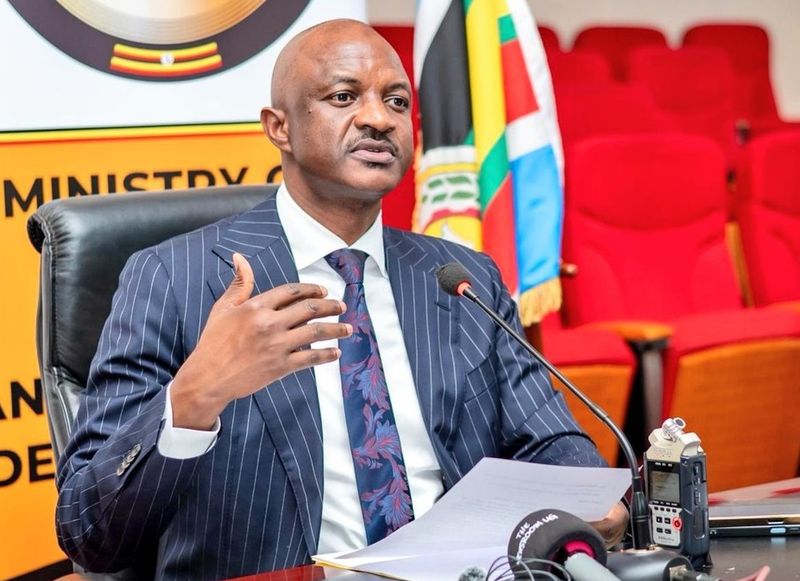
As the Ministry of Finance, Planning and Economic Development wraps up its second week of Local Government Budget Consultations for the 2026/27 financial year, leaders across Uganda are pushing for increased funding.
Permanent Secretary and Secretary to the Treasury (PSST), Ramathan Ggoobi, announced that the government expects to operate within a reduced budget of UGX 69.399 trillion, down from UGX 72.376 trillion in the current year. Despite this cut, domestic revenue projections have increased to UGX 40.090 trillion, up from UGX 36.806 trillion in 2025/26.
The Ministry emphasized curbing what it called “budget games”, cases where accounting officers seek extra funds for salaries, pensions, and gratuities after budgets have already been approved.
The nationwide consultations which include all local governments are set to conclude next week. Leaders have been encouraged to align their local budgets with national priorities focused on economic transformation, as outlined in the Fourth National Development Plan (NDP IV) and the Tenfold Growth Strategy. Key focus areas include agro-industrialisation, private sector development, tourism, human capital, regional growth, urbanization, and sustainable resource management.
Local governments must submit their budget framework papers by November 14, 2025, and their development plans by March 31, 2026, to ensure timely budget execution in FY 2026/27.
Consultations were conducted regionally, with the first week covering Arua, Lira, Jinja, and Hoima, and the second week in Gulu, Mbale, Mbarara, Kabale, and Masaka.
At a session in Jinja, Minister of State for Planning, Amos Lugoloobi, said all issues raised will be reviewed by Programme Working Groups, then submitted to Cabinet and Parliament. He emphasized early and inclusive consultations with stakeholders to prevent late budget approvals.
"The consultations should be early enough to avoid late approval of budgets, as well as minimise the distortions," Lugoloobi noted, urging alignment with NDP IV and the Tenfold Growth Strategy.
PSST Ggoobi reiterated this, stating that budgeting must be forward-looking: "Budget preparation should not be limited to current problems. Accounting Officers must anticipate future needs, integrate long-term priorities, and align plans with the Tenfold Growth Strategy and NDP IV."
The Ministry sees these consultations as vital to building consensus and closing loopholes that enable misuse of public funds. The 2026/27 budget will operate under the theme: "Full Monetisation of Uganda's Economy through Commercial Agriculture, Industrialisation, Expanding and Broadening Services, Digital Transformation and Market Access."
In Kabale, Minister of State for General Duties, Henry Musasizi, emphasized a stronger focus on implementing core economic sectors in the upcoming budget. He acknowledged concerns about the lack of training for local leaders in monitoring public projects and confirmed that post-election funds would be allocated for their induction.
He also announced a UGX 11.93 billion allocation to improve agricultural extension services, promising sustained funding in the medium term. Musasizi and others cautioned accounting officers against budget indiscipline, particularly making funding requests after budget approvals, especially for wages and pensions.
This stance was echoed in Masaka by State Minister for Micro Finance, Haruna Kasolo, who stated there should be no more post-approval requests for salary-related funding.
In Mbale, Internal Auditor General Fixon Akonya Okonye called on accounting officers to involve local political leaders more actively in budget planning. "I will take a keen interest in the challenges and the agreed solutions that will contribute to the development of appropriate interventions in the financial year 2026/27 and the medium term,” he said.
On wage and pension issues, Dr Okonye stressed the need for data integrity and strict compliance with verified payroll audits: "For financial year 2026/27, emphasis will be on strict adherence to verified payroll audits, outcomes from the Ministry of Public Service harmonisation exercise and the integrity of data captured on the Programme Budgeting System when preparing all salary, pension and gratuity budgets."

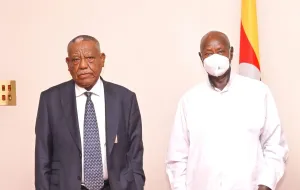
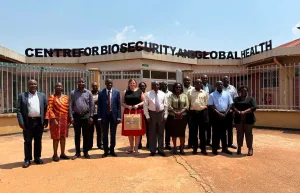
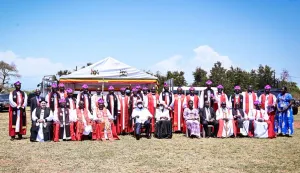

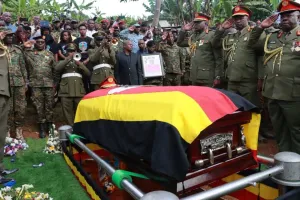







Marlene Luwedde
Leave a Comment
Your email address will not be published.